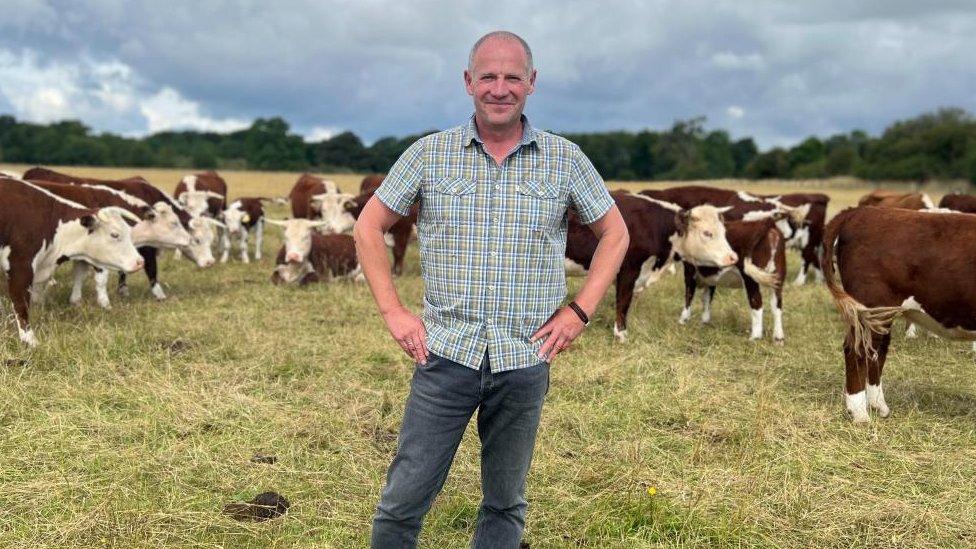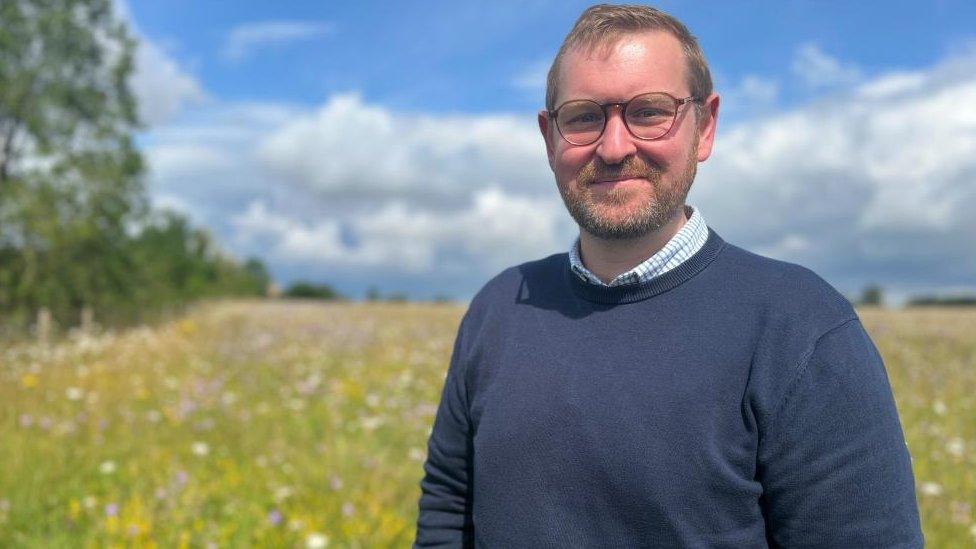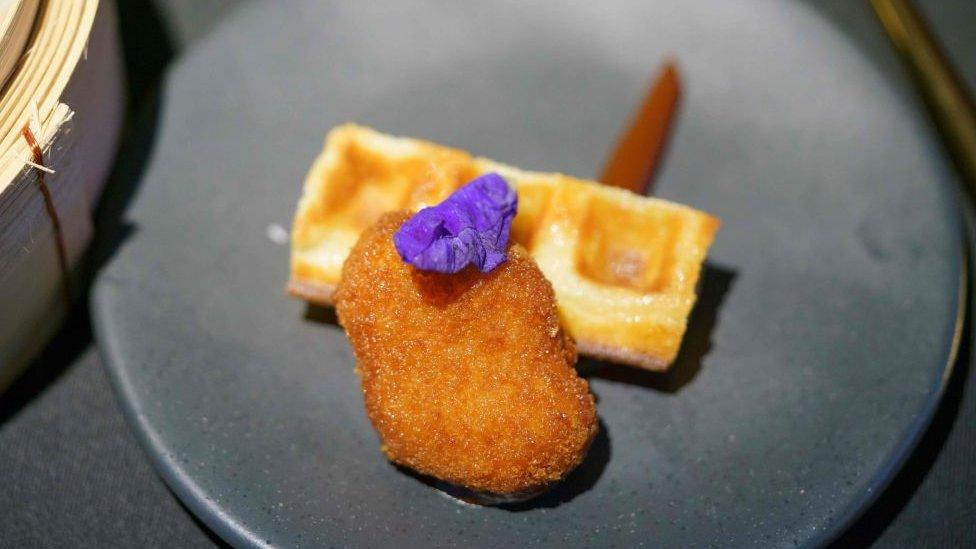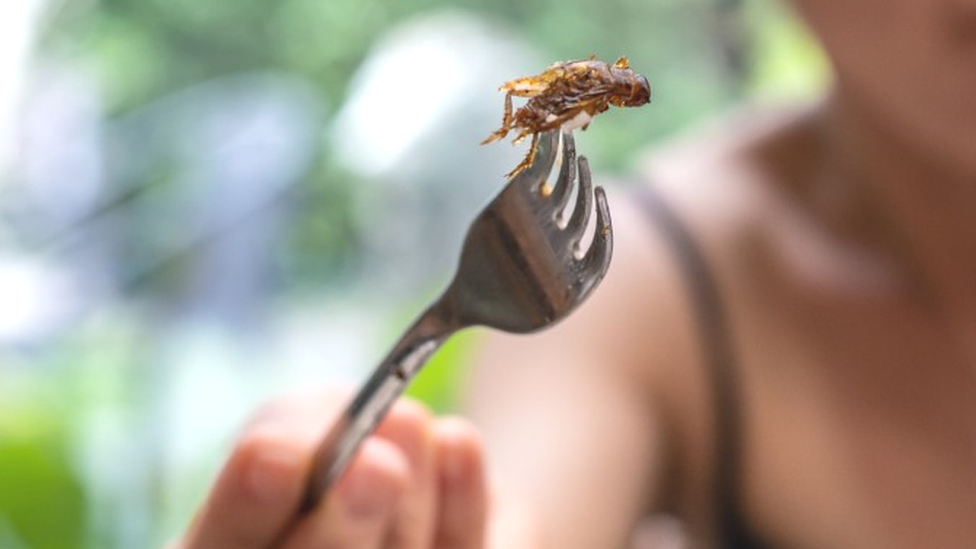Call for farmers to join study on lab-grown meat
- Published

Farmer Jonty Brunyee says the rise of cultured meat may make traditional farming unviable one day
A team led by the Royal Agricultural University (RAU) is investigating what impact lab-grown meat could have on the farming industry.
The six-month study, external will help predict the winners and losers from new forms of meat production.
"The jury is still out. We will end up selling lab-grown meat next to my meat," said eco-farmer Jonty Brunyee.
CEO of Cellular Agriculture, Illtud Dunsford, said consumer thinking needed to change to make farming sustainable.
"There's an ideal world where we change our ways as consumers - we eat less, we consume less - but the reality is that as a personal consumer, I appreciate my smartphone and my air travel," he said.
Mr Dunsford made the switch to produce technology for lab-grown, or cultured, meat in 2015, saying it is "one future."
"We need many tools to meet the growing population, but we're at the infancy of this industry," he said.

Illtud Dunsford has been an early adopter of lab-grown meat technology
Dr Lisa Morgans, senior lecturer in animal health and welfare at the RAU, which is based in Cirencester, said 70 farmers had taken part in the study so far.
"Initially they were shocked, and not fully aware of the processes, but it also highlighted some consequences of the technology such as the health of the planet," she said.
'We need big change'
Mr Brunyee said the current global food system was "not sustainable."
"The food system is still depletive - and going backwards - so we need some big change.
"Farmers can't stop it, its going to happen without us.
"But I don't think we know how much cultured meat will cost per kilo, there is a worry it will make meat farming an unviable sector to be in," he added.

Follow BBC West on Facebook, external, Twitter, external and Instagram., external Send your story ideas to: bristol@bbc.co.uk
Related topics
- Published8 June 2023

- Published29 March 2023

- Published25 April 2022
